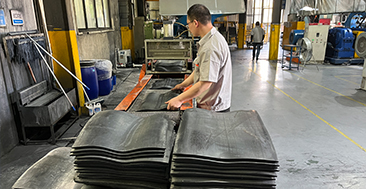high pressure fuel line
نوامبر . 16, 2024 10:02 Back to list
high pressure fuel line
The Importance of High-Pressure Fuel Lines in Modern Vehicles
In the world of automotive engineering, the components that make up an internal combustion engine are critical to its performance and efficiency. Among these components, high-pressure fuel lines play a pivotal role in delivering fuel from the fuel tank to the engine at the necessary pressure levels for optimal performance. Understanding the function, design, and maintenance of high-pressure fuel lines is essential for anyone involved in vehicle maintenance or automotive engineering.
What are High-Pressure Fuel Lines?
High-pressure fuel lines are specialized tubes designed to transport fuel from the fuel pump to the fuel injectors at high pressures. In modern automobiles, especially those equipped with direct injection systems, fuel lines must handle pressures ranging from 40 to over 200 psi (pounds per square inch). This high pressure is necessary to atomize fuel efficiently for combustion, ensuring that the air-fuel mixture in the engine's cylinders is ideal for power generation.
Design and Materials
The design of high-pressure fuel lines is not arbitrary; it involves meticulous engineering to ensure safety and efficiency. These lines are typically constructed from materials that can withstand extreme pressure and resist corrosion, including reinforced rubber, stainless steel, and even polymer composites. The fuel line's diameter is also essential as it affects the flow rate and overall engine performance.
The connection points, or fittings, on high-pressure fuel lines are engineered to prevent leaks, which are critical to safety and engine performance. A tiny leak can lead to decreased fuel efficiency, increased emissions, or even pose a fire hazard. As such, high-pressure fuel lines are often fitted with specialized seals and clamps to maintain integrity under high-stress conditions.
The Role in Engine Performance
The fuel delivery system, of which high-pressure fuel lines are a crucial part, directly impacts engine performance. High-pressure fuel lines ensure that the engine receives a consistent and adequate fuel supply essential for maintaining engine power and efficiency. In a direct injection engine, for example, the fuel needs to be injected at very high pressures directly into the combustion chamber. This process requires a well-designed fuel line to sustain the necessary pressure without degrading or experiencing leaks.
high pressure fuel line

Moreover, any compromise in the high-pressure fuel lines can lead to several issues, such as misfiring, reduced power output, and increased emissions. This demonstrates the importance of maintaining these fuel lines in peak condition to preserve overall vehicle performance.
Maintenance and Common Issues
Like any other component in a vehicle, high-pressure fuel lines require regular inspection and maintenance. Common issues with these lines can include deterioration due to heat and exposure to chemicals, which leads to cracking or corrosion. Regular inspections should focus on checking for signs of wear, leaks, or damage to the fittings.
Additionally, modern vehicles often feature onboard diagnostic systems that can alert drivers to potential issues with the fuel delivery system. A warning light on the dashboard may indicate that fuel pressure is lower than expected, which could be a sign of problems within the high-pressure fuel lines or other parts of the fuel system.
Innovations in High-Pressure Fuel Lines
With advancements in technology, manufacturers are continually looking for ways to improve the design and functionality of high-pressure fuel lines. Innovations such as the use of advanced composite materials can enhance durability without adding unnecessary weight to the vehicle. Additionally, improved manufacturing processes have led to more reliable fittings and seals, reducing the likelihood of leaks.
As we move toward an era of electric vehicles, the role of high-pressure fuel lines will evolve, but for the foreseeable future, they will remain an integral part of internal combustion engines. Continued research and development in this area will likely lead to even greater efficiencies and safety in fuel delivery systems.
Conclusion
In conclusion, high-pressure fuel lines are a vital component in the performance and efficiency of modern vehicles. Their design, maintenance, and innovation are essential for ensuring that internal combustion engines function smoothly and efficiently. Understanding the importance of these components allows automotive professionals and enthusiasts alike to appreciate the intricate engineering that goes into vehicle performance and safety. As the automotive landscape continues to evolve, high-pressure fuel lines will remain an indispensable element of fuel delivery systems for years to come.
